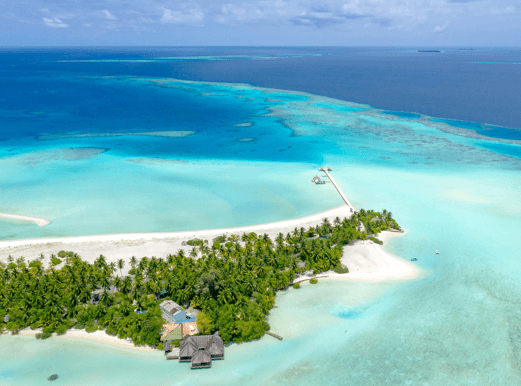Owning a private island is a powerful dream, but the reality involves much more than just sand and scenic views. There are many critical details to consider before buying an island, as the initial purchase price, which can range from under $100,000 to over $10 million, is only the beginning of your expenses. You must also account for substantial ongoing costs, such as annual upkeep that can easily exceed $20,000, and initial due diligence, like marine surveys, that can cost thousands. Key factors, such as physical access, zoning restrictions for building, and the immense cost of installing utilities like power and septic systems, must be carefully evaluated. Real estate investors Steve Daria and Joleigh, who buy land for cash, stress that buyers must first understand these complexities. They have seen firsthand how overlooking details can turn a dream into a financial burden. For practical guidance or to explore a straightforward cash offer for your existing property, it’s vital to get expert advice before buying an island. Book a free discussion with our team today to navigate your options with confidence.
Are private islands a good investment?
While private islands can be a wonderful lifestyle purchase, they are rarely a straightforward financial investment.
Unlike traditional real estate, the market for private islands is very small, which means they are highly illiquid and can take years to sell.
Their value depends heavily on factors such as location, size, accessibility, and the presence of existing infrastructure like docks or utilities.

It is crucial to understand that ownership costs for insurance, maintenance, and transportation are significantly higher than for mainland properties, which can eat into any potential returns.
This is a critical financial detail to evaluate before buying an island.
To make a sound decision, you should research comparable island sales, create a detailed budget for annual upkeep, and have a clear long-term exit strategy.
The unique risks, such as storm damage and long holding periods, mean they are not suitable for everyone seeking investment growth.
For a realistic assessment of an island’s potential, it is wise to consult with experienced real estate advisors who specialize in unique properties.
Get Started: Get Your Cash Offer Below…
We are direct land buyers. There are no commissions or fees and no obligation whatsoever. Start below by sharing where your property is and where we can send your offer…
Can you build anything you want on a private island?
No, you cannot build anything you want on a private island, as construction is heavily regulated to protect the environment and ensure safety.
Local zoning laws, environmental protections for sensitive habitats, and shoreline regulations almost always limit building.
You will likely face rules on structure height, setbacks from the water, and specific requirements for septic and water systems designed for coastal areas.
This is a critical point to investigate thoroughly before buying an island.
You will need to obtain various permits and may be required to complete environmental impact assessments and land surveys, which can make project timelines much longer than on the mainland.
Furthermore, logistical challenges, such as transporting materials and labor by boat or helicopter, add significant complexity and cost.
To understand what is possible, consult with the local planning department and consider hiring a land-use attorney.
Getting a professional feasibility study is a wise first step to confirm your building plans are realistic.
What is the ‘due diligence’ process for buying an island?
- Title Search and Ownership Verification: The first step is to confirm the seller has the legal right to sell the property and that the title is free of any hidden claims or liens. A thorough title search by a qualified attorney ensures you are getting clear and undisputed ownership.
- Access and Logistical Assessment: Investigate the means of getting to and from the island, as well as the transportation of building materials and supplies. Evaluating the costs and reliability of boat or air access is a critical step to take before buying an island.
- Environmental and Zoning Checks: This involves assessing protected habitats, endangered species, and environmental restrictions that may limit land use. You also need to confirm local zoning laws to see what types of structures, if any, you are permitted to build.
- Utilities and Engineering Feasibility Study: An engineer can check if installing essential off-grid systems like solar power, water collection, and septic tanks is possible and how much it will cost. A feasibility study is the best way to understand the true cost of development before buying an island.
- Financial and Risk Evaluation: Calculate total ownership costs, factoring in property taxes, high-risk insurance (like hurricane coverage), and ongoing maintenance expenses. Beyond the initial purchase, you must confirm your ability to comfortably sustain the island long-term.

How is an island’s value and asking price determined?
Determining an island’s value is more complex than for a typical home, as it blends tangible features with unique market dynamics.
An island’s location and size drive its price, as well as the amount of land that is actually usable and buildable.
Key factors include accessibility, such as whether it has a deep-water dock or airstrip, and the presence of existing infrastructure like power and water systems.
The quality of the shoreline, elevation above sea level, and stunning views also add significant value.
You must research these specific details before buying an island.
Because the pool of potential buyers is small, islands can take much longer to sell, often leading to more room for negotiation than in traditional real estate.
To get an accurate valuation, it is essential to get a professional appraisal and review recent sales of comparable island properties in the region.
Ultimately, a realistic asking price considers all these factors plus the total cost of future ownership and maintenance.
How can I finance the purchase of a private island?
- Cash Purchase: The most common way to buy a private island is with cash, as traditional lenders rarely approve mortgages for such unique properties. Buyers often use personal savings or liquidate other investments to fund the purchase directly and avoid financing complexities.
- Private Bank Loans: Wealth management divisions of private banks may offer loans to high-net-worth clients, often secured against a larger investment portfolio. It is wise to explore these specialized lending relationships and understand their strict requirements before buying an island.
- Seller Financing: In certain situations, the current owner might offer to finance the purchase themselves, effectively taking on the role of the lender. This arrangement involves a down payment followed by regular payments to the seller, with terms that are negotiated directly between both parties.
- Partnerships or Syndication: You can pool resources with partners or a group of investors to purchase the island collectively, which spreads out the financial burden. This approach requires a detailed legal agreement outlining ownership shares and responsibilities before buying an island.
- Leveraging Other Assets: You could use existing assets, like a home equity loan on your residence or a loan against your stock portfolio. These loans can provide the necessary liquidity, but also tie the island purchase to the performance of your other assets.
What kind of maintenance plan does an island require?
An island requires a proactive and comprehensive maintenance plan far beyond that of a typical property.
This plan must cover routine inspections of all structures, shoreline management to prevent erosion, and regular upkeep of docks and moorings.
You also need to budget for servicing off-grid utility systems, such as solar power and septic tanks, as well as manage landscaping and pest control, and keep any roads or trails clear.
It is vital to have a strategy for storm preparation and post-storm repairs, which includes having spare parts and reliable access to contractors.
Understanding these significant and recurring expenses is essential before buying an island.
For a realistic look at what island ownership entails, it is wise to consult with experienced real estate advisors who specialize in remote properties.
To get practical advice on these long-term costs and navigate your options with confidence, book a free discussion with a professional today.
Takeaway
- Calculate the True Total Cost: The initial price is only a start; consider added costs like installing utilities, transporting materials, and specialized insurance. Buying an island requires a realistic budget, including annual property taxes, routine upkeep, and a contingency fund for storm repairs to prevent financial surprises.
- Evaluate Access and Logistical Risks: Accessibility to your island is key; evaluate the reliability and cost of boat or air access in all weather conditions. Consider the immense logistical challenge of moving supplies, equipment, and labor for any construction or maintenance projects.
- Investigate All Legal and Environmental Limits: Building is restricted by zoning laws, codes, and environmental rules. It is essential to complete comprehensive due diligence, including a title search and environmental assessment, to verify your rights and restrictions.
- Confirm the Island’s Practical Value: An island’s value is determined by practical features like size, terrain, and infrastructure, not just its scenic beauty. Get a professional appraisal and review comparable sales to ensure the price is fair and reflects the property’s actual development potential.
- Plan Your Financing and Exit Strategy: Traditional island mortgages are uncommon; most purchases require cash, private loans, or seller financing. Buying an island requires a long-term plan, as the small, illiquid market can make selling it a lengthy process.
**NOTICE: Please note that the content presented in this post is intended solely for informational and educational purposes. It should not be construed as legal or financial advice or relied upon as a replacement for consultation with a qualified attorney or CPA. For specific guidance on legal or financial matters, readers are encouraged to seek professional assistance from an attorney, CPA, or other appropriate professional regarding the subject matter.
